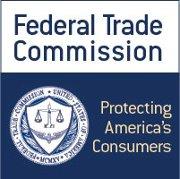
FTC Halts Deceptive Mortgage Loan Modification Scheme
The Federal Trade Commission has charged a mortgage loan modification operation with deceiving financially distressed homeowners by falsely promising to prevent foreclosure and make their mortgages more affordable. A federal court temporarily halted the scheme and froze the defendants’ assets at the FTC’s request.
According to the FTC, the defendants typically charged consumers $3,900 in unlawful advance fees, in $650 monthly installments, falsely promising expert legal assistance and touting a 98-100 percent success record. They also allegedly misrepresented they would cut homeowners’ interest rates in half and reduce their monthly mortgage payments by hundreds of dollars.
The FTC alleges that the defendants used doctored government logos in correspondence with consumers, falsely suggesting they were affiliated with or endorsed by the federal government’s Making Home Affordable loan modification program. They also claimed to have special relationships with particular lenders and unlawfully told consumers not to pay their mortgages to or communicate with their lenders. In many instances, the FTC alleges, consumers paid hundreds or thousands of dollars only to learn that the defendants had not obtained the promised loan modifications, and in some cases had never even contacted the lenders. As a result, many people incurred substantial interest charges and other penalties for paying the defendants instead of their mortgage payments, and some lost their homes to foreclosure.
The defendants, charged with violating the FTC Act and the Mortgage Assistance Relief Services Rule [MARS Rule (Regulation O)], are Preferred Law PLLC; Consumer Defense LLC (Nevada); Consumer Defense LLC (Utah); Consumer Link Inc.; American Home Loan Counselors; American Home Loans LLC; Consumer Defense Group LLC, formerly known as Modification Review Board LLC; Brown Legal Inc.; AM Property Management LLC; FMG Partners LLC; Zinly LLC; Jonathan P. Hanley; Benjamin R. Horton; and Sandra X. Hanley.
The FTC appreciates the assistance provided by the Utah Attorney General's Office, the Utah Department of Commerce – Division of Consumer Protection, the New Mexico Attorney General’s Office, the Connecticut Department of Banking, and the Oregon Department of Consumer and Business Services in bringing this case. The Commission vote approving the complaint was 2-0. The U.S. District Court for the Nevada entered a temporary restraining order against the defendants on January 10, 2018.
For consumer information about avoiding mortgage and foreclosure rescue scams, see Mortgage Relief Scams.
NOTE: The Commission files a complaint when it has “reason to believe” that the law has been or is being violated and it appears to the Commission that a proceeding is in the public interest. The case will be decided by the court.
The Federal Trade Commission works to promote competition, and protect and educate consumers. You can learn more about consumer topics and file a consumer complaint online or by calling 1-877-FTC-HELP (382-4357).
